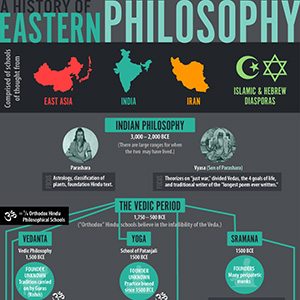I am working on the formalisation of the prescriptions regarding the Full- and New-Moon sacrifices in the Baudhāyana Śrautasūtra. In Kashikar’s edition, they cover about 32 full pages of Sanskrit. And they are overtly boring in their pedantic prescription of each sacrificial detail. Thus, instead of reading the BaudhŚrSū, have a look at what follows for what is interesting in them:
Monthly Archives: November 2014
Updates concerning the 3quarksdaily philosophical blog prize
CfP for PhD students and postdocs on Yogācāra Buddhism in Context
I received this email from Constanze Pabst von Ohain and Marco Walther
Within the scope of the Doctoral Program in Buddhist Studies at the Ludwig-Maximilians-Universität München, Germany, we announce our upcoming workshop “Yogācara Buddhism in Context: Approaches to Yogācāra Philosophy throughout Ages and Cultures”.
Please find attached a call for papers for PhD students/postdocs and further information that you can forward to any parties that might be interested.
We are looking forward to receiving applications.
Abstract submission deadline: 31. December 2014.
Anand Venkatkrishnan on Vedānta, bhakti and Mīmāṃsā through the history of the family of Āpadeva and Anantadeva in 16th–17th c. Banaras
When, where and how did bhakti become acceptable within the Indian intellectual élites?
You can now vote the best philosophical blogpost UPDATED
…among the ones selected at 3quarksdaily, here. Scroll down for more details.
Call for Proposals: The Gonda Fund for Indology
The Gonda Fund for Indology awards fellowships to promising young Indologists at post-doctorate level, that enable them to spend one to six months at the International Institute for Asian Studies (IIAS) in Leiden, the Netherlands.
The Gonda Fund also offers funding for publications and research projects in Sanskrit or other Indian languages and literatures, and in Indian cultural history.
The deadlines to apply for a fellowship or for funding of a research project or publication are 1 April and 1 October of every year.The Gonda Fund is a foundation of the Royal Netherlands Academy of Arts and Sciences.
More information is available at www.knaw.nl/gonda-fund.
A chart of the “History of Eastern Philosophy”
Most readers will have already noted this chart of “Eastern Philosophy” at Superscholar.

Now, I have already commented about it at DailyNous, but the staff of Superscholars has written to me twice to advertise the map, so that I feel compelled to repeat my comment and some further ones here. I would also like to ask readers: Do you think these maps have some use at all? If so, for whom? Beginners or Advanced scholars?
Daya Krishna’s “Creative Encounters with Texts”
Daya Krishna was an Indian philosopher, a rationalist and iconoclast, who constantly tried to question and scrutinise acquired “truths”. The main place for such investigations was for him a saṃvāda ‘dialogue’. That’s why he also strived to organise structured saṃvāda inviting scholars from different traditions to debate about a specific problem. The minutes of such dialogues have been published in Saṃvāda and Bhakti.
The origins of Hayagrīva
The Hayagrīva (horse-head) form of Viṣṇu is slightly disturbing, not only for his half animal aspect (a characteristic shared by various other avatāras, from Narasiṃha to Matsya), but also for the fact that the horse head does not find a proper justification in most texts… And when it does find one, I strongly suspect that it is an ad hoc explanation, in order to solve the riddle. Let me elaborate a bit more:

…of the last year (that is, written after November the 9th 2013) here, before November the 17th.
Unfortunately, only the 100 most voted posts will be evaluated. It would be nice if a post dealing with non-Western philosophy could be at least nominated among those 100, so check whether you can support one which has already some votes!